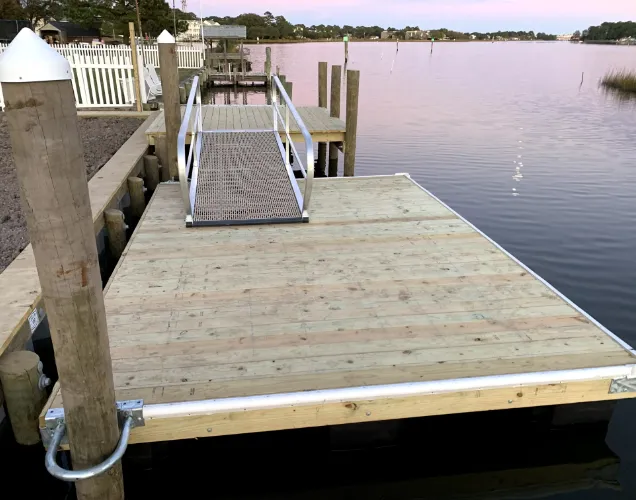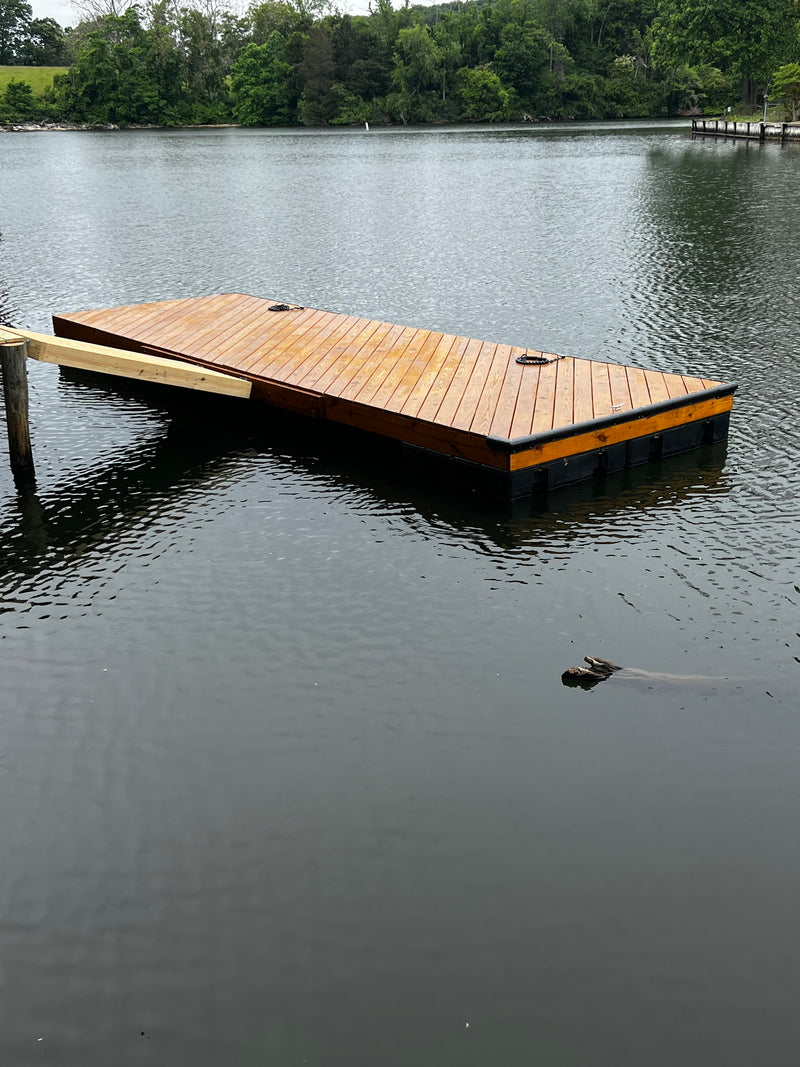Improve Your Water Experience with Customized Floating Docks Designed for Your Way of living
Improve Your Water Experience with Customized Floating Docks Designed for Your Way of living
Blog Article
The Ultimate Guide to Selecting the very best Floating Docks
Choosing the excellent floating dock needs an extensive understanding of various aspects that affect both efficiency and durability. Aspects such as dock types, materials, and crucial functions considerably impact your decision-making procedure.
Comprehending Floating Dock Kind
When choosing a drifting dock, it is important to understand the numerous kinds readily available, as each serves distinctive objectives and applications. Floating docks largely drop into three categories: modular, fixed, and pontoon docks.
Modular docks are composed of individual areas that can be easily constructed or reconfigured, making them optimal for transforming water degrees and varied usages, such as entertainment activities or business procedures. Their flexibility enables customization based upon specific demands.

Pontoon docks are defined by their buoyant structure, commonly composed of multiple pontoons that offer security and support. They are especially appropriate for bigger vessels and are generally made use of in marinas or for waterside properties. Comprehending these kinds help in selecting one of the most ideal floating dock to meet specific requirements, ensuring optimal functionality and safety and security.
Key Materials for Sturdiness
Picking the best materials for floating docks considerably influences their resilience and durability. The most typical products include wood, plastic, steel, and composite products, each offering distinctive advantages and constraints.
Wood, usually preferred for its aesthetic appeal, needs normal maintenance to hold up against moisture and decay. Pressure-treated lumber can boost resistance to rot, but it might still be susceptible to insects and weathering.

Plastic docks, made from high-density polyethylene (HDPE), are resistant to corrosion, UV radiation, and influence, making them a popular option for seaside atmospheres. Their lightweight nature also helps with simple setup and relocation.
Metal docks, typically built from aluminum or galvanized steel, supply phenomenal toughness and sturdiness. They are immune to deterioration, especially when dealt with, but may call for additional insulation to avoid warmth accumulation in warm climates.
Composite products, integrating timber fibers and plastics, provide the benefits of both timber and plastic, withstanding dampness and fading while needing marginal maintenance. - floating docks
Eventually, the selection of products should line up with environmental conditions, planned use, and maintenance preferences to make sure the floating dock remains functional and aesthetically pleasing gradually.
Necessary Functions to Think About
While the option of materials is important, taking into consideration necessary features for floating docks is just as vital to ensure optimum efficiency and user complete satisfaction. One crucial feature to analyze is the dock's buoyancy capability, which identifies exactly how much weight it can support without submerging. floating dock builder. This is crucial for fitting watercrafts, individual boat, and also leisure activities
Additionally, portability is a substantial consideration. Relying on your demands, sites you may want a dock that is simple to move and dismantle, specifically if you prepare to move it seasonally. Stability is one more vital function; a properly designed floating dock needs to reduce movement caused by wind and water currents, providing a safe system for users.
Security functions, such as non-slip surfaces and rounded sides, are likewise essential to stop mishaps, especially in wet problems. Furthermore, think about the accessibility of accessories, such as cleats, bumpers, and ladders, which can improve the capability of your dock.
Installment and Maintenance Tips
Establishing up and preserving a drifting dock calls for cautious preparation and attention to information to ensure its durability and ideal performance. Begin by selecting an ideal place that reduces exposure to solid currents and waves, which can cause damage. Ensure that the water deepness suffices for the dock's elevation and that it is secured securely to avoid movement.
Throughout installment, adhere to the producer's standards very closely, as improper setting up can compromise stability. Usage high-quality products resistant to deterioration, such as aluminum or treated timber, to boost sturdiness. On a regular basis evaluate all elements, including drifts, ports, and securing systems, for signs of damage or wear.
Maintenance try this web-site is vital for extending the life of your dock. Clean the surfaces periodically to stop algae accumulation and look for any kind of loosened fittings that may call for tightening. Ensure they continue to be intact and complimentary from punctures if your dock utilizes flotation devices. Furthermore, take into consideration applying safety layers to wooden elements to lower weathering effects. By sticking to these installment and upkeep tips, you can delight in a useful and reliable floating dock for years to come.
Budgeting for Your Dock
Budgeting for your dock is a critical action that can substantially influence your total satisfaction and financial investment in a waterfront building. Establishing a clear spending plan aids you navigate the numerous options readily available and ensures you make notified decisions that line up with your economic abilities.
Begin by determining the dimension and layout of the dock you call for, as these elements will significantly influence the expense. Floating docks can vary substantially in price, relying on materials, buoyancy, and attributes like ramps and devices. Research various suppliers and suppliers to contrast rates and recognize the market worth.
Along with preliminary expenses, take into consideration ongoing costs such as maintenance, insurance, and possible repair services. Allocate funds for these reoccuring costs to avoid shocks down the line. It's also sensible to budget plan for any type of needed permits or inspections, which may be needed by neighborhood laws.
Finally, bear in mind the potential roi. A tactical dock can enhance your building's worth and allure, supplying a positive monetary effect in the long try these out term. By budgeting successfully, you can make sure that your dock fulfills your requirements without compromising your monetary security.
Conclusion
In final thought, choosing the ideal floating dock necessitates a detailed assessment of different elements, consisting of dock kinds, materials, necessary features, and setup procedures. Focusing on toughness and compliance with regional regulations inevitably enhances performance and residential or commercial property worth. Careful factor to consider of monetary constraints will better ensure a sound financial investment. By sticking to these guidelines, individuals can make enlightened choices that advertise lasting contentment and use in water settings.

While the selection of materials is important, taking into consideration necessary functions for floating docks is just as essential to make sure ideal performance and individual contentment.Setting up and preserving a floating dock requires cautious planning and focus to detail to guarantee its longevity and optimal performance. Floating docks can vary considerably in rate, depending on products, buoyancy, and attributes like ramps and accessories.In final thought, picking the ideal floating dock demands a complete analysis of different variables, including dock kinds, products, vital functions, and installation processes.
Report this page